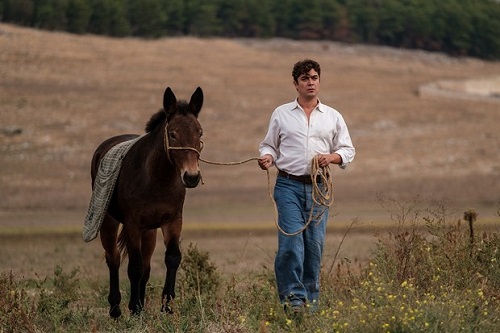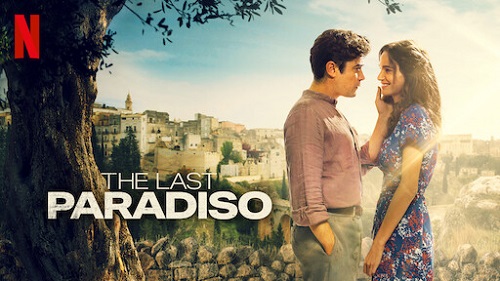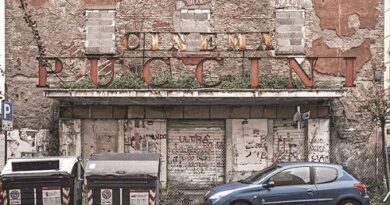The Last Paradiso and the cost of Freedom
In the tradition of Greek Tragedy, “The Last Paradiso” enchants us with romantic images – in this case the Puglian countryside – and eventually leads the viewer through its sometimes-violent depictions of irreparable familial trauma. A Netflix-made film in association with Mediaset, “The Last Paradiso” stars Puglia native Riccardo Scamarcio, who also produced and co-wrote the film with Director Rocco Ricciardulli. The film is set in the 1950s, post-war Southern Italy, a backdrop awash with inconvenient truths about severe oppression, exploitation and violent crime – but no less inspiring for the stories of the survivors. Co-writers Scamarcio and Ricciardulli have pulled from their own cultural experiences, committing the cast to speaking regional dialect and drawing from family stories the Director heard growing up. Thematically rich and at times topsy-turvy, the film is also a visually immersive experience. It’s a nostalgic trip, but only for audiences willing to endure the vicissitude of the seasons.
The story follows Ciccio Paradiso, the son of impoverished labourers living in Southern rural Italy. His dream of moving North with his new love Bianca (Gaia Bermani Amaral) takes a tragic turn when he embroils himself in a violent feud with her father, a Greedy Landowner (Antonio Gerardi). When speaking about what audiences might extract from the film’s message Ricciardulli says, “The desire and the need to speak up, to denounce in a less chaotic way [than Ciccio] but to speak up”. Ciccio and Bianca are victims of their time, star-crossed not only romantically but also through their inability to realize a dream, a life sans poverty and grave injustice – a life like his brother Antonio’s in Milano. Bianca’s fight to emancipate herself from the many dimensions of her father’s tyranny, not least of which include the raping of young girls, foretells of a bigger fight for women on the horizon.
“The Last Paradiso” is not for the faint of heart. It’s a raw depiction of the struggle between landless peasants in rural Italy and the propertied ruling classes, specifically in Southern Italy at that time. It’s a good reminder to break from scrolling through social media, open up a history book and learn about the conditions that drove many Italians to emigrate to America (and elsewhere), not only in search of better wages and working conditions, but for the opportunity to own land, their own businesses and to start anew with their families. The stories of our forefathers and relatives are often romanticized, and the details omitted, some of which included brutal sacrifices for the freedoms gained. The film serves much of this up through a mare’s nest of troubled romance, an appropriate symbol for the turbulent times. A turbulence or “anarchy” that is perhaps par for the course when pursuing freedom, according to co-writer and star Scamarcio: “There is also a necessity, a freedom exercised without thinking about the consequences. That is, true freedom. In some ways love is a form of true anarchy. Because it subverts any logical desire and is an unstoppable impulse”.
Where to watch The Last Paradiso: Netflix
Massimo Volpe is a filmmaker and freelance writer from Toronto: he writes reviews of Italian films/content on Netflix






